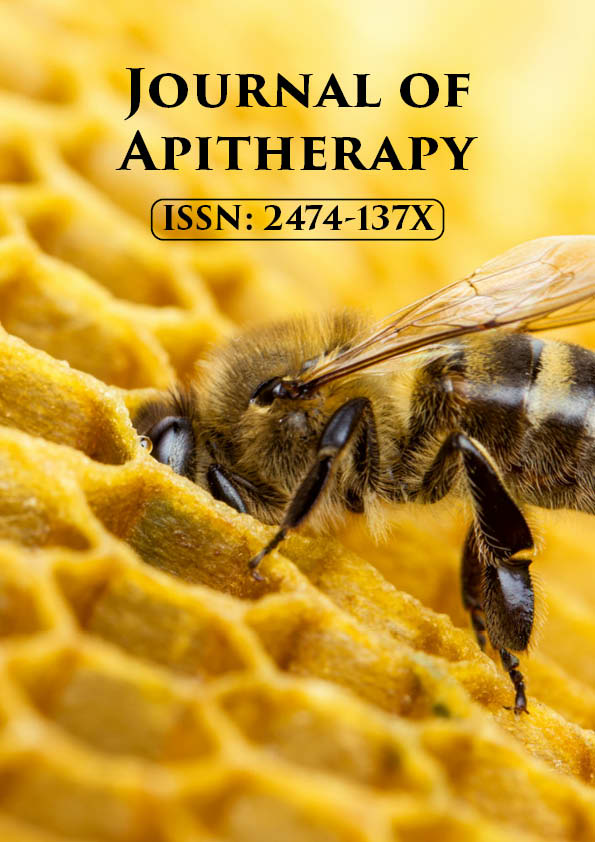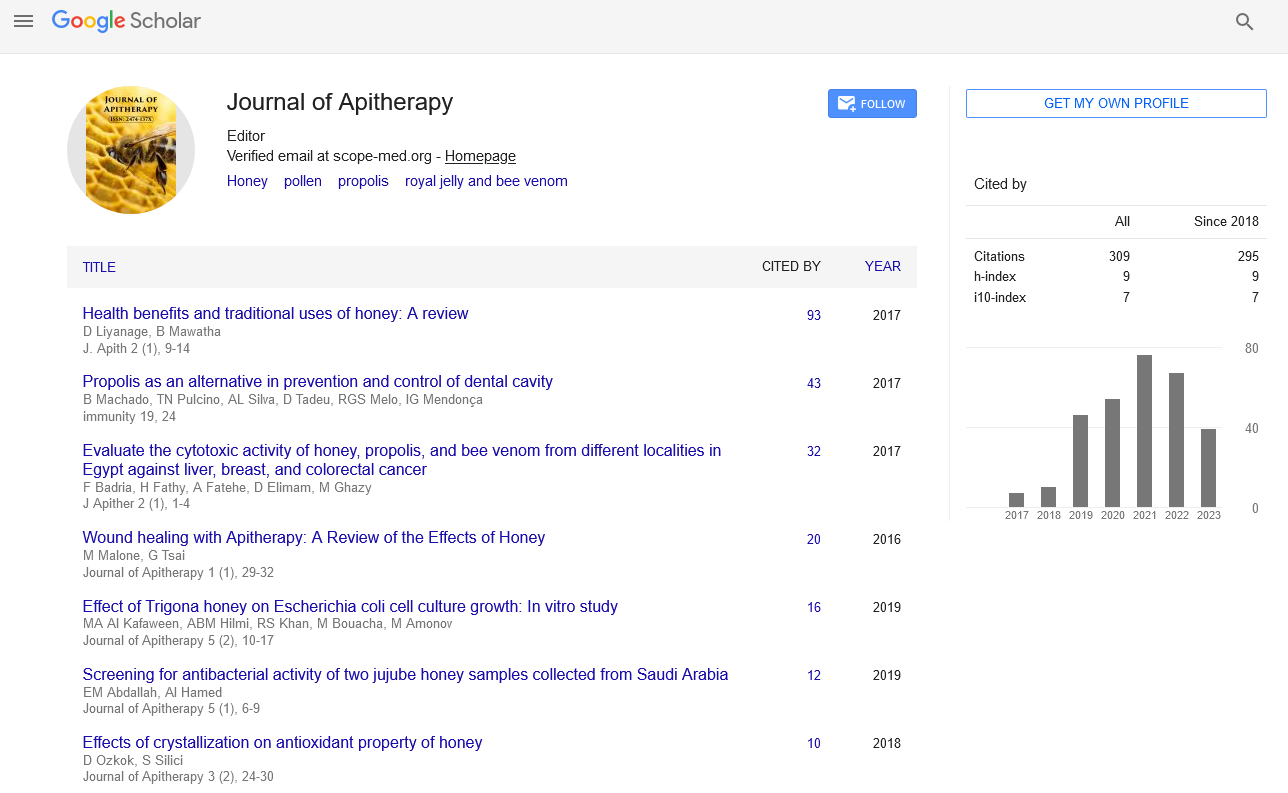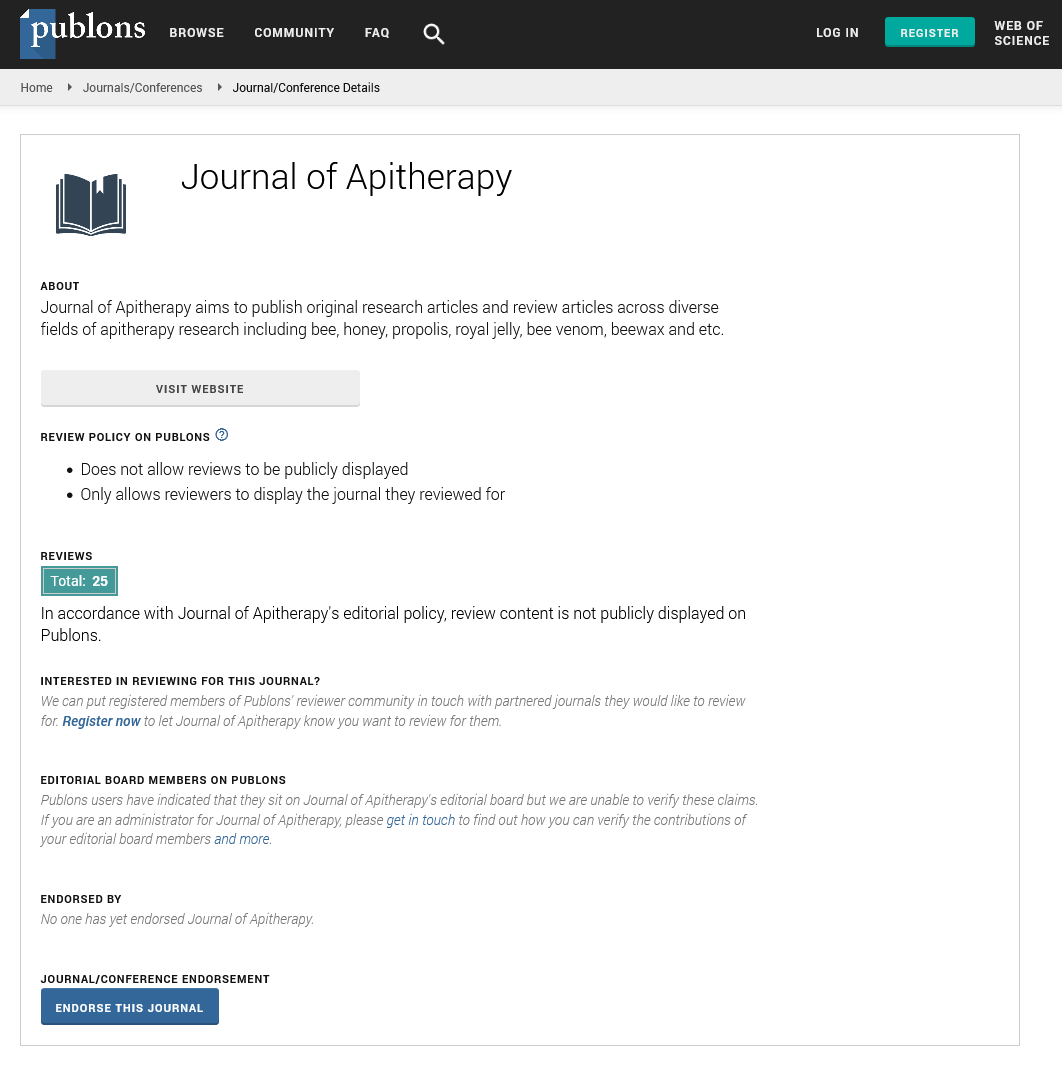Commentary - Journal of Apitherapy (2023)
Propolis Tincture: Nature's Resinous Elixir for Health and Healing
Adrian Potvin*Adrian Potvin, Department of Agriculture, University of Helsinki, Helsinki, Finland, Email: Swarnalata1186023@gmail.com
Received: 03-Aug-2023, Manuscript No. JAPITHERAPY-23-119491; Editor assigned: 07-Aug-2023, Pre QC No. JAPITHERAPY-23-119491 (PQ); Reviewed: 21-Aug-2023, QC No. JAPITHERAPY-23-119491; Revised: 28-Aug-2023, Manuscript No. JAPITHERAPY-23-119491 (R); Published: 04-Sep-2023
Description
Propolis tincture, a liquid extract of the natural substance produced by honeybees, has been revered for its therapeutic properties for centuries. Known as "bee glue," propolis is a resinous mixture collected by bees from tree buds, sap, and other botanical sources. Bees use propolis to protect their hives from environmental threats and to maintain hive integrity. In this article, we explore the intriguing world of propolis tincture, delving into its composition, historical use, modern applications, potential health benefits, and the scientific evidence supporting its role in health and wellness.
The composition of propolis
Propolis is a complex mixture of various bioactive compounds, and its composition varies depending on factors such as geographical location, the vegetation available to bees, and the season. Common constituents of propolis include:
Resins: Bees collect resins from various plant sources and modify them to create propolis.
Beeswax: Bees use beeswax to blend the collected resins into a malleable substance.
Essential oils: Propolis contains aromatic compounds that contribute to its overall scent and flavor.
Pollen: Trace amounts of pollen can be found in propolis.
Flavonoids: These antioxidant compounds are abundant in propolis and are thought to contribute to its health benefits.
Polyphenols: Another group of antioxidants that play a role in the therapeutic potential of propolis.
Amino acids: The building blocks of proteins are found in propolis.
Vitamins: Some vitamins, such as vitamin A, B vitamins, and vitamin E, are present in propolis.
Minerals: Propolis contains trace amounts of essential minerals like calcium and zinc.
Glycoproteins: Glycoproteins are compounds made up of both proteins and carbohydrates, and they are one of the lesser-known but increasingly researched components of propolis.
Understanding propolis tincture
Propolis tincture is an alcohol-based liquid extract of propolis. The extraction process typically involves macerating raw propolis in alcohol to release its bioactive compounds. The resulting tincture contains a concentrated dose of propolis constituents, making it a potent and versatile natural remedy.
Historical use of propolis
The use of propolis for its therapeutic properties has ancient origins. It has been a part of traditional medicine systems across different cultures and regions. Some historical applications of propolis include:
Wound healing: Propolis was used topically to treat cuts, burns, and skin injuries due to its potential to accelerate wound healing.
Oral health: Various cultures used propolis to maintain oral health by chewing or applying it to gums and teeth. Its antimicrobial properties were believed to help combat oral infections and inflammation.
Immune support: Propolis was consumed or applied to boost the immune system, particularly during cold and flu seasons.
Gastrointestinal health: Propolis was used to alleviate digestive issues and promote a healthy gut.
Respiratory Health: Inhalation or ingestion of propolis was a traditional remedy for respiratory ailments.
Conclusion
Propolis tincture, derived from the resinous treasure of honeybees, offers a broad spectrum of potential health benefits. Its antioxidant, anti-inflammatory, antimicrobial, and immune-modulating properties have made it a subject of growing interest in scientific research and natural healthcare. While it has been used in traditional medicine for centuries, the modern exploration of propolis tincture continues to uncover its potential applications and mechanisms of action. As with any natural remedy, it's advisable to consult with a healthcare professional, choose products from reputable sources, and be mindful of potential allergies or sensitivities.







